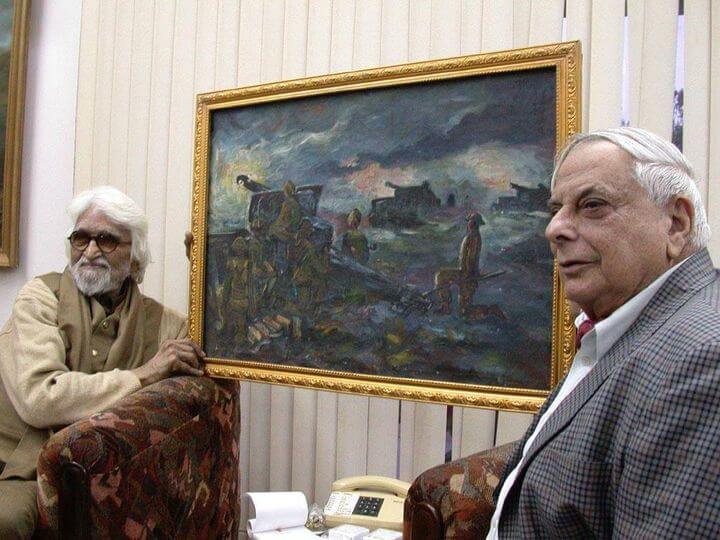In an extensive interview with Swati, Phil Diana Maduagwu addresses many queries about Nigeria as a middle-income, mixed economy and emerging market. A Different Truths exclusive.
Phil holds a Master’s Degree in International Human Resources Management from the Cranfield University, UK, and a Master’s Degree in International Relations from the University of Benin. She is an alumnus of Howard University School of Management, USA; a certified Human Resources practitioner (SHRM, CIPD, and CIPM), Organisational Trainer and Business Continuity Management System Auditor. She has worked as a top HR and L&D professional for about 20 years in various industries and sectors across Nigeria.
![]() What is Phil as a professional?
What is Phil as a professional?
![]() I would describe myself as a seasoned People Manager; irrespective of the context of the groupings, working with people and guiding them to meet set objectives is my passion. As a professional, I am unrelenting (in a good way), dogged and fierce. I believe in clarity of purpose, integrity, transparency, and equity; I live by these key values and they guide me as I lead my team.
I would describe myself as a seasoned People Manager; irrespective of the context of the groupings, working with people and guiding them to meet set objectives is my passion. As a professional, I am unrelenting (in a good way), dogged and fierce. I believe in clarity of purpose, integrity, transparency, and equity; I live by these key values and they guide me as I lead my team.
I have always been guided by the personal philosophy of winning; because I believe that the world always looks to results, not effort; but as a leader my philosophy, my drive is to become the kind of leader that people would follow voluntarily. My greatest achievement is my consistency, the fact that my personal brand is untainted and unambiguous. I stand for what I stand for, unapologetically.
![]() What were the challenges faced by you, as a woman, in the corporate world?
What were the challenges faced by you, as a woman, in the corporate world?
![]() As a woman in the corporate space, I would say that I have been luckier than most; and this is because I came into the corporate space fearless. I was armed from a very young age with the strong belief that the concept of male superiority was a fallacy. I was also lucky to have met some very inspiring men and women who have, all through my life, supported me and held the door open for me to breeze through; but this is not to say that things have been easy because they have not.
As a woman in the corporate space, I would say that I have been luckier than most; and this is because I came into the corporate space fearless. I was armed from a very young age with the strong belief that the concept of male superiority was a fallacy. I was also lucky to have met some very inspiring men and women who have, all through my life, supported me and held the door open for me to breeze through; but this is not to say that things have been easy because they have not.
A woman in the corporate world is not expected to be ambitious, ambition is seen as a connotation associated purely with the male gender. I have found that if you allowed it, you would not be given an opportunity to even start, and if you don’t start, you can never become. I have had to lean on my skills like intuitiveness, the ability to give good counsel, my innate ability to multi-task and my firm, yet gentle approach to excel and grow.
I have learnt that men are very willing to use your obstacles against you every moment they get and by obstacles, I mean the various roles you play as a woman. Your role as a wife is used to excuse you from meetings so you can go home and tend to your family and your role as a mother is used to make you feel guilty for being late at a work event when you should be home tending the kids. If you are not smart, you will mistake this patronising behavior as concern and understanding.
One thing I still cannot get over but which I have learned to disregard is the tendency for the men in the room, your colleagues and counterparts to look to you when coffee is required in the room; in their minds, they still see you as being there to serve them.
![]() What do you feel are the gaps in Nigeria from college to corporate world?
What do you feel are the gaps in Nigeria from college to corporate world?
![]() The gaps are numerous especially today when the standards obtainable in our educational institutions are extremely poor. What stands out from my perspective are, the absence of a values orientation in our curriculum, the absence of soft skills required by graduates to enable them to fit in and function effectively within the workspace and an entrepreneurial development program for the undergraduate whose desire is to set up their own business upon leaving school.
The gaps are numerous especially today when the standards obtainable in our educational institutions are extremely poor. What stands out from my perspective are, the absence of a values orientation in our curriculum, the absence of soft skills required by graduates to enable them to fit in and function effectively within the workspace and an entrepreneurial development program for the undergraduate whose desire is to set up their own business upon leaving school.
![]() What are the key features of Nigeria as an emerging economy/emerging job market?
What are the key features of Nigeria as an emerging economy/emerging job market?
![]() An emerging economy is one which shows the most potential to become a developed economy, one which has the enabling environment, processes, systems, and resources to attract investors and provide them with an opportunity for high and stable profits. As a nation with an approximate population of 196million people, a good percentage of whom are young, resourceful, entrepreneurial as well as highly socially aware, you would agree with me that this is an investors haven. It is a haven that can both be mined as a market for products and services as well as a source for the workforce. We are also a nation blessed with immense natural wealth, most of which are yet untapped or not adequately leveraged.
An emerging economy is one which shows the most potential to become a developed economy, one which has the enabling environment, processes, systems, and resources to attract investors and provide them with an opportunity for high and stable profits. As a nation with an approximate population of 196million people, a good percentage of whom are young, resourceful, entrepreneurial as well as highly socially aware, you would agree with me that this is an investors haven. It is a haven that can both be mined as a market for products and services as well as a source for the workforce. We are also a nation blessed with immense natural wealth, most of which are yet untapped or not adequately leveraged.
Looking at Nigeria, I would say the key feature that she possesses as an emerging market is that we have a market and a people that are very demanding based on our culture and our technological savviness. Today, Nigeria is one of the very few nations with an immense mobile footprint and one of the very few African countries that has leveraged mobile technology for financial transactions. What this means is that we are not just globally and socially aware, we are also well informed and a discerning, yet demanding market that can be explored.
![]() What are the professionally developed and upcoming sectors of the Nigerian job market?
What are the professionally developed and upcoming sectors of the Nigerian job market?
![]() As a keen observer of our market and one who has had to work with these sectors and within them, I would say that our most developed sector are our banking and manufacturing sectors. Over time we have developed some maturity in other sectors like the telecoms, insurance, advertising/marketing communication, human resources and management, oil and gas, construction, consulting just to mention a few. However, we must bear in mind that our level of maturity depends on who we are being compared or matched against.
As a keen observer of our market and one who has had to work with these sectors and within them, I would say that our most developed sector are our banking and manufacturing sectors. Over time we have developed some maturity in other sectors like the telecoms, insurance, advertising/marketing communication, human resources and management, oil and gas, construction, consulting just to mention a few. However, we must bear in mind that our level of maturity depends on who we are being compared or matched against.
You must remember that this list is in no way conclusive.
![]() What are the unique advantages and disadvantages of working in Nigeria?
What are the unique advantages and disadvantages of working in Nigeria?
![]() One of the key advantages of working in Nigeria is the fact that the people one gets to work with are resourceful, despite the tough conditions and circumstances that people work under, they are still creative and innovative. I also love the fun-filled spirit of the Nigerian person and this is reflected even in the workplace making it a very diverse and interesting place to be. Above all, I see as a key advantage the fact that because we are behind the world in so many ways, in pursuing our development as a people, if we are smart we may be able to avoid the mistakes already made.
One of the key advantages of working in Nigeria is the fact that the people one gets to work with are resourceful, despite the tough conditions and circumstances that people work under, they are still creative and innovative. I also love the fun-filled spirit of the Nigerian person and this is reflected even in the workplace making it a very diverse and interesting place to be. Above all, I see as a key advantage the fact that because we are behind the world in so many ways, in pursuing our development as a people, if we are smart we may be able to avoid the mistakes already made.
The disadvantages of working in Nigeria for me would be the double standards that exist in organisations. The poor management style of executives and the absence or near absence of leadership qualities within our organisations and nation. We are also infrastructurally deficient, this also impacts work and life.
![]() What is the role of recruitment agencies in Nigeria?
What is the role of recruitment agencies in Nigeria?
![]() From the early 90s, there was a boom of Nigerian owned recruitment agencies, most of them set up by Nigerian returnees. Today, these recruitment firms have become more entrenched and other well-structured Nigerian owned recruitment agencies have also emerged. In the same space, we also have global agencies like the KPMG, PwC, Deloitte, Ernst and Young and a host of others offering the same service to the clientele that also has recruitment specialists sitting within their organizations and working with these firm.
From the early 90s, there was a boom of Nigerian owned recruitment agencies, most of them set up by Nigerian returnees. Today, these recruitment firms have become more entrenched and other well-structured Nigerian owned recruitment agencies have also emerged. In the same space, we also have global agencies like the KPMG, PwC, Deloitte, Ernst and Young and a host of others offering the same service to the clientele that also has recruitment specialists sitting within their organizations and working with these firm.
The role of recruitment agencies in Nigeria is not different from anywhere else in the world. They are basically responsible for the provision of support to organizations by assisting them fill unique, specialized roles or by helping these firms manage huge recruitment projects that the firms cannot handle themselves. The rates charged for these services are benchmarked against global rates and because the world has shrunk considerably, local recruiters often partner with International firms to fill roles with candidates from the diaspora when they cannot be sourced locally.
All recruitment agencies are obligated to be members of HUCAPAN, an association of recruiters in Nigeria and they need to be registered to legally function as recruiters. The labor ministry is the monitoring body that ensures compliance.
![]() How important is the role of learning and development from an HR perspective?
How important is the role of learning and development from an HR perspective?
![]() The role of learning and development is a very important one, both globally and locally. A business should never stand still, and neither should the development of its employees who are the key asset required to drive business objectives. Living in a fast-paced world, organizations are constantly realizing that they cannot apply yesterday’s solutions to today’s problems and that to maintain a cutting-edge system they need to be in a constant state of learning.
The role of learning and development is a very important one, both globally and locally. A business should never stand still, and neither should the development of its employees who are the key asset required to drive business objectives. Living in a fast-paced world, organizations are constantly realizing that they cannot apply yesterday’s solutions to today’s problems and that to maintain a cutting-edge system they need to be in a constant state of learning.
I always tell business leaders that no matter how spectacular their vision and strategy is, these elements cannot jump off the sheet and execute themselves, it takes well motivated, empowered and well-trained employees to make a vision a reality.
![]() What precautions should one take while dealing with Nigerian companies?
What precautions should one take while dealing with Nigerian companies?
![]() The most candid precaution to take is not to make the mistake of assuming that they are not intellectually sound; Nigerians are brilliant.
The most candid precaution to take is not to make the mistake of assuming that they are not intellectually sound; Nigerians are brilliant.
![]() What are the key points of living conditions and security in Nigeria?
What are the key points of living conditions and security in Nigeria?
![]() Infrastructurally, Nigeria is still struggling. The people are very active and constantly on the go, therefore to live here one would have to be purposeful and active. The security situation has deteriorated over the past few years especially in the northern part of the country with attacks and killings from herdsmen and the popular terrorist group, Boko Haram. The situation in the southern part of the country is not so dire but the incidence of kidnapping and robbery also mar and rob inhabitants of a secure feeling.
Infrastructurally, Nigeria is still struggling. The people are very active and constantly on the go, therefore to live here one would have to be purposeful and active. The security situation has deteriorated over the past few years especially in the northern part of the country with attacks and killings from herdsmen and the popular terrorist group, Boko Haram. The situation in the southern part of the country is not so dire but the incidence of kidnapping and robbery also mar and rob inhabitants of a secure feeling.
![]() What is your take on work-life balance?
What is your take on work-life balance?
 I believe work-life balance is not a just a physical concept approached from the perspective of teleworking and flexi-time, I believe a balance can only be achieved where there is both psychological as well as physical equilibrium. I would argue that the psychological balance is even more important than how many hours an employee can take off work and the amenities available at work for the employee’s convenience.
I believe work-life balance is not a just a physical concept approached from the perspective of teleworking and flexi-time, I believe a balance can only be achieved where there is both psychological as well as physical equilibrium. I would argue that the psychological balance is even more important than how many hours an employee can take off work and the amenities available at work for the employee’s convenience.

©Swati Kumar
Photo sourced by the author and from the Internet
#Interview #Work #Econmy #Nigeria #Women #Employment #DifferentTruths





 By
By
 By
By
 By
By
 By
By
I was totally absorbed with the interview. You captured the happenings in the corporate world and the impact on the wormen folk. Incidentally, you provided a good response on how women can survive and succeed in a competitive environment, that is classic and a good call for any aspiring women. I have known you to be a firm and direct person across the years and you didn’t disappoint with your responses. I believe you should share the interview in your mentoring class to both ladies and gentlemen climbing the corporate leadership. Keep the flag flying…
I’ve always known you to be an inspirational leader and your responses are not short of that. You displayed being a seasoned Professional and I’m quite proud of you. Great job, well done!!!
This is a masterpiece from a master herself. You are a great blessing to both the corporate and feminine world. Keep it up and keep the flag flying. God bless you and your dreams.
Whaoh! Good and amazing responses, direct and simply on point. Well done Madam Phil, my “Nigeria Ambassador”